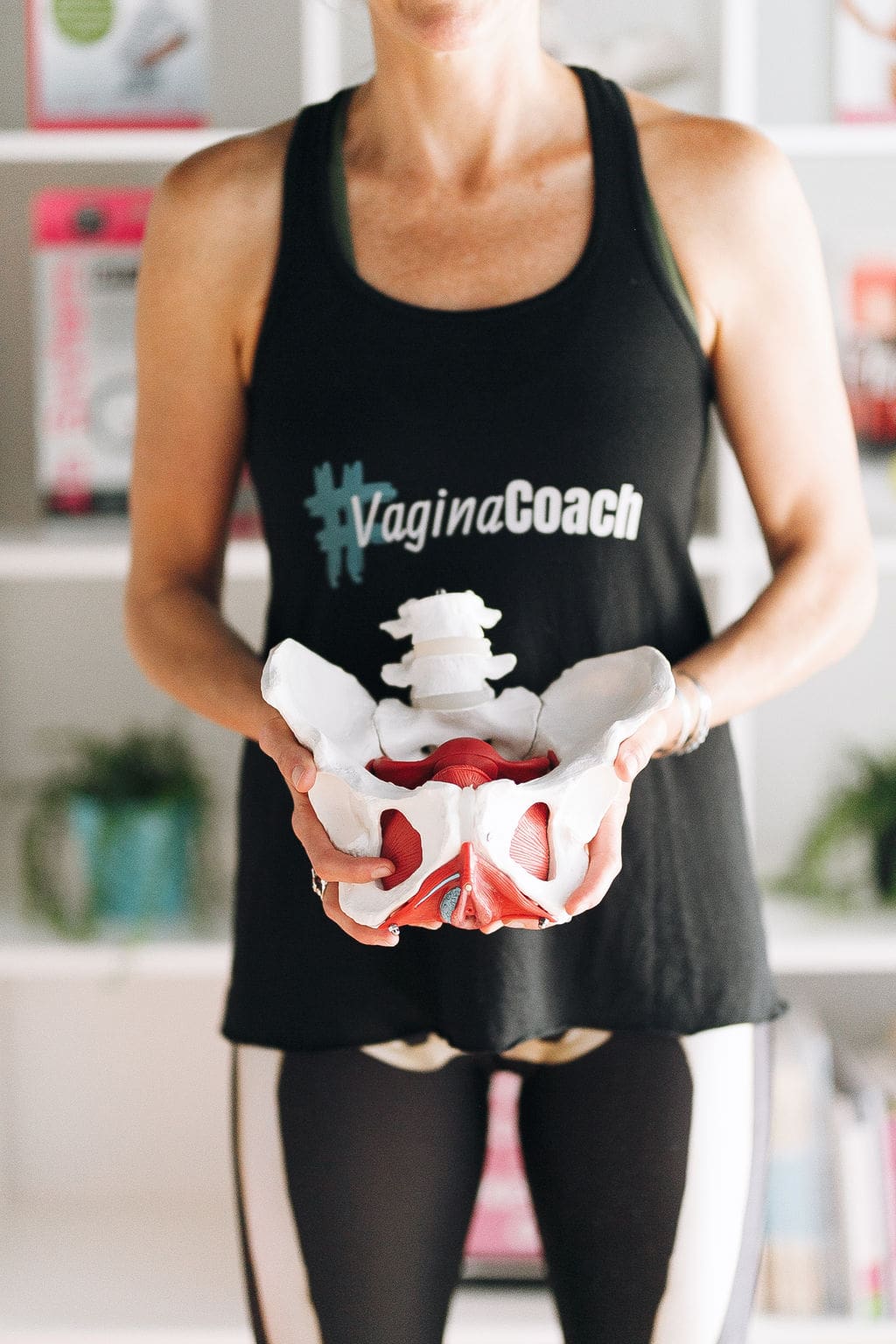Pop culture has told women, especially moms, to expect to pee a little when we laugh or sneeze. Kim Vopni, the Vagina Coach, says this isn’t true and it isn’t “normal.” June 20 to 26 is World Continence Week, a worldwide health campaign to raise awareness of incontinence related issues. Continence is often a taboo topic, so we opened up with Kim about pelvic floor health, correcting our Kegels and how to stop peeing when we laugh. —Jenn Wint

Hi Kim! First, what exactly is incontinence and what role does the pelvic floor play?
Incontinence is the involuntary loss of urine. The pelvic floor is a group of muscles that help regulate the urethra, the vagina and the anus. These muscles keep things closed and allow them to open up when we want something to come out, or go in. Stress Urinary Incontinence (SUI) is when muscles can’t react in time or with enough force to close the opening and prevent urine leaking out. This is a common condition affecting close to 40 per cent of women as that’s only reported case, I believe that number to be much higher.
Is incontinence a problem only for women who’ve given birth vaginally?
Incontinence can happen to anyone—even women who have never give birth. Vaginal birth is a known risk factor but if you give birth by caesarean, you’ve still carried an increased load on your pelvic floor for months and had the posture and hormone changes that come with pregnancy. In addition, you’ve had multiple layers of incisions through the core which makes up part of the pelvic floor. Recovery from pregnancy is essential but is often overlooked and common struggles like incontinence can carry over into menopause when the pelvic floor changes again. Constipation is another known contributor to incontinence issues and can also be a sign of pelvic floor dysfunction. Incontinence can become an issue for just about anyone.
Are there any known cures for incontinence or just ways to manage it?
The pad industry would love us to believe there’s no cure but there is. Simple, regular exercises can improve incontinence dramatically and literally change the way people live. Some doctors are quick to suggest a surgery when really there is so much that can be done with a physio or at home that will strengthen and train the pelvic floor to stop incontinence.
Is there a good time to start doing Kegels?
Kegels are typically discussed when there’s a problem like incontinence or organ prolapse or when people become pregnant. While it is an important part of the conversation in pregnancy, I believe we should begin the discussion even earlier and share information about Kegels and the pelvic floor when we teach young women about menstruation and sexual health in school. If they knew what physiotherapy is available and understood the role of the pelvic floor and it operates, we’d be normalizing this conversation.
Why do you think people are so hesitant to speak to their doctors about incontinence?
It’s embarrassing to admit you’re an adult peeing your pants. It’s not a conversation anyone wants to have, especially women. Many people are afraid to embarrass their care provider, and many care providers don’t know all of the options for pelvic floor exercise and therapy. Also, pelvic floor issues are usually wrapped up in other health concerns and go undiagnosed. I believe the more we talk openly about the challenges many of us are facing, the less taboo these topics will be, and the more women will seek treatment. Many other health issues stem from a weak pelvic floor and could be preventable. Incontinence isn’t something that just gets better with time unfortunately so the longer it goes undiagnosed the more negative impact it has on general health and lifestyle.
What led you to become the Vagina Coach?
I know what it’s like to have a pelvic floor consuming my thoughts, work, and personal life, and how life-altering it can be. I experienced stress urinary incontinence and Stage 2 uterine prolapse and healed it. I also lived with a rectocele for nine years. I have experienced the challenges of pelvic health but was fortunate enough to start working in the field and was able to help myself. Now I use my personal and professional experience to help other women access education and treatment. I’m a preacher. I’m an advocate. I’m an educator, speaker, teacher, and a support person for anyone with a vagina or uterus. I’ve seen the changes in people who once suffered incontinence and overcame it and can live freely again. I wish that for everyone.
What are some ways women can learn more about pelvic floor health?
I recommend all women have their pelvic floor evaluated by a pelvic floor physiotherapist. Although, that option isn’t available to everyone due to location, costs, medical coverage, comfort, etc. There’s a Kegels Quiz on my website, which is a good place to start, and I offer a 28-day challenge through my app, Buff Muff. We have capacity to evaluate our pelvic floor with fingers inside our vagina. There is so much available online that allows women to learn and experiment in the privacy of their home. These resources also give women the language and the confidence to ask the right questions when they see a care provider. My best advice to any woman is to educate herself and seek help, you don’t have to suffer with incontinence!

Be the first to comment